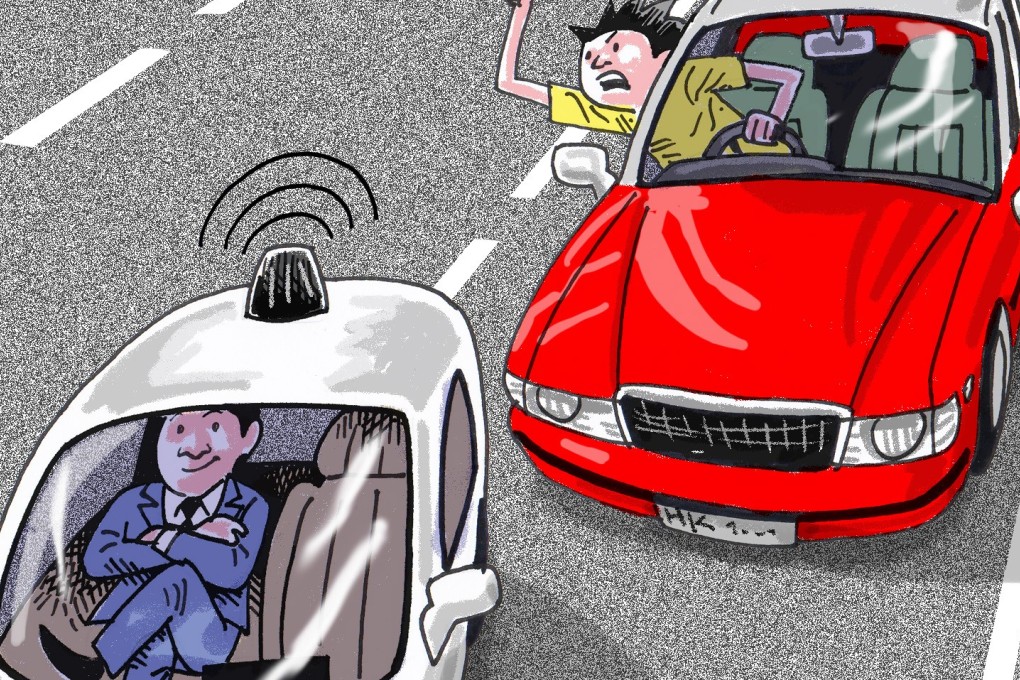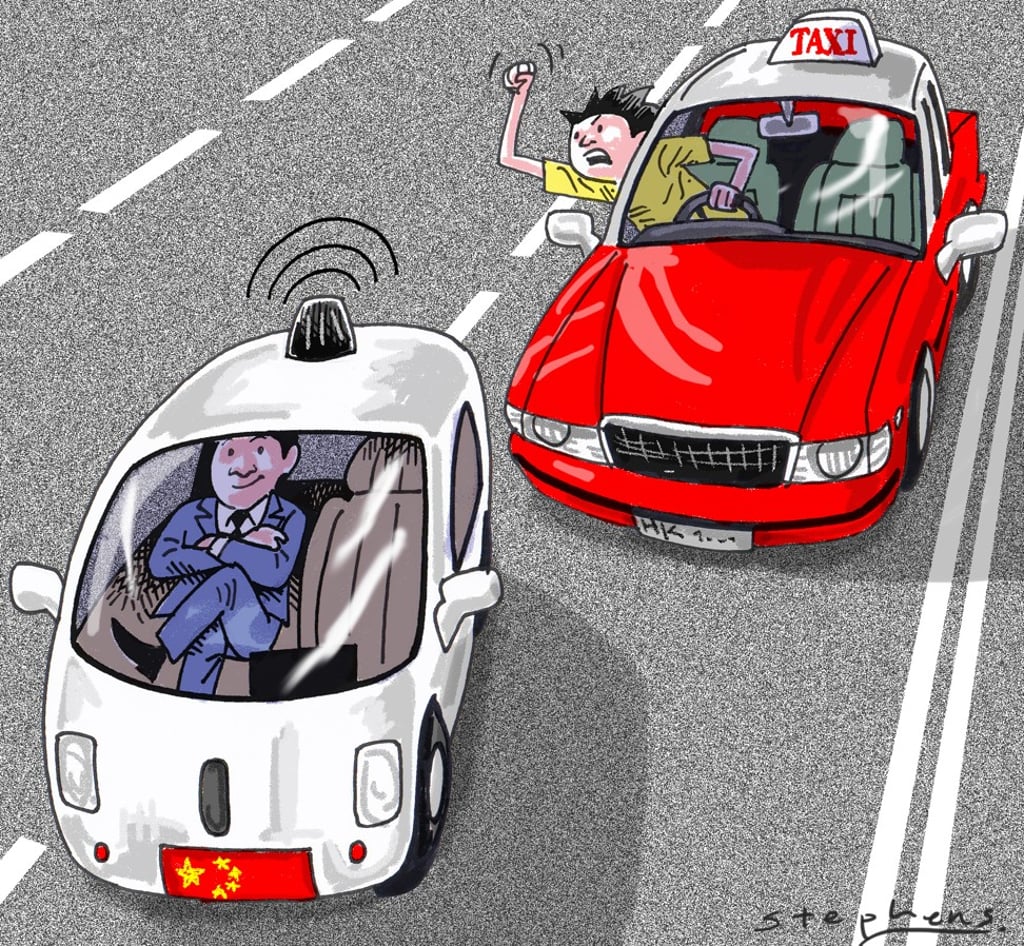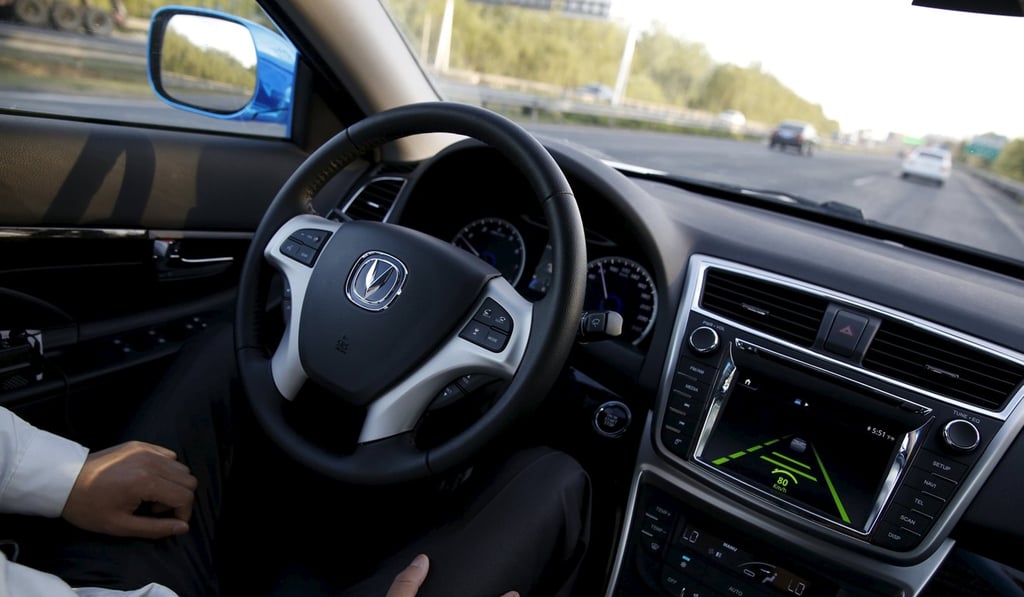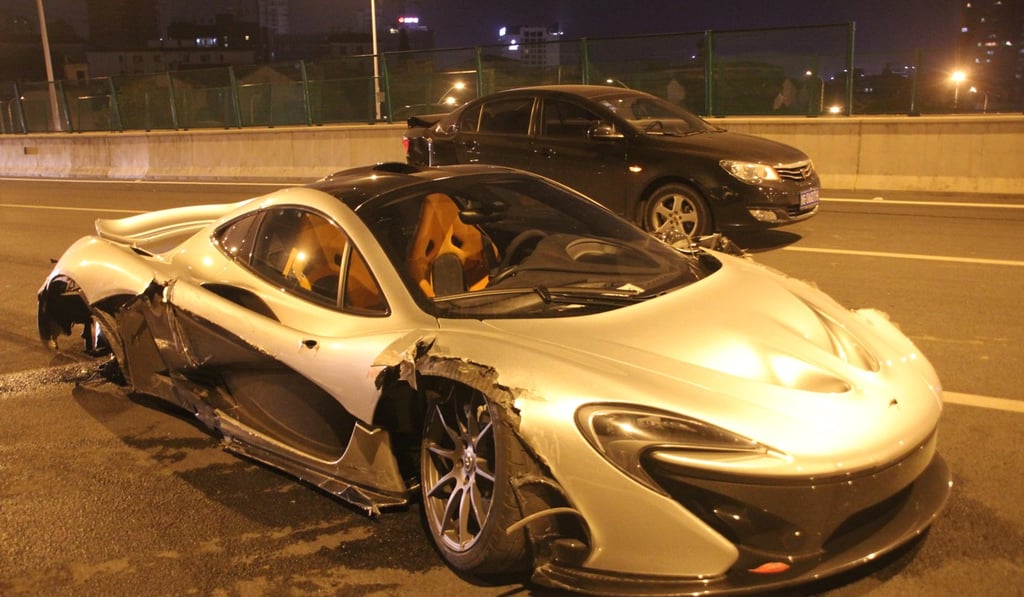Advertisement
China accelerates towards a driverless future as Hong Kong stalls
Wilson Wong says mainland China’s intensive investment and flexible workforce make it the ‘holy grail’ for autonomous cars, in contrast to Hong Kong, where concerns about job losses dominate thinking
Reading Time:4 minutes
Why you can trust SCMP
0


The idea of an encroaching future where highly advanced driverless cars are inextricably intertwined with homes, infrastructure such as roads and bridges, offices and drones (also considered autonomous vehicles) is no longer a flight of fantasy, but imminent reality. The dawn of this sea-changing technology will significantly affect China, the world’s largest automotive market. Moreover, the Middle Kingdom has every intention of dominating this emerging field (part of its “Made in China 2025” mission) and the government has asserted that it would like to have highly, or fully, autonomous vehicles for sale by as early as 2021.

In 20 years, no one needs to own a car, says Grab CEO
By 2026-2030, Chinese authorities plan to have some degree of automated or assisted driving system in every vehicle in the country. The sheer commercial potential of this impending technology explains China’s overwhelming interest; by 2035, the Boston Consulting Group asserts that the global driverless car market could be valued at US$77 billion (impressive, considering the industry is still nascent today).
China is blighted by reckless driving (more than 250,000 deaths annually in road accidents), pollution and massive traffic congestion, so the driverless car could be an idea whose time has come. Relative newcomers to the world of driving, many Chinese do not share the West’s love affair with it. This is clear from a 2015 World Economic Forum survey, where three-quarters of the Chinese polled said they would have no issue riding in a self-driving car, vis-à-vis half of their American counterparts.

Driverless cars may cut crashes, but computers do fail
Considering the immense scale of China’s bold autonomous vehicle ambitions, there will be no lack of doubters. For starters, laws governing autonomous vehicle use are non-existent despite the impending deadline. To be fair, the US itself is still sorting out this potential regulatory minefield.
Advertisement